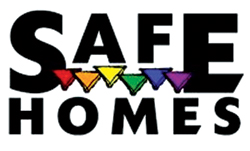 By: Lauren Walleser/TRT Reporter–
By: Lauren Walleser/TRT Reporter–
For gay, lesbian, bisexual, transgender and questioning youth who continue to be targeted by bullying and isolation in schools, Safe Homes offers a refuge where they are able to navigate and explore their sexual and gender identities in a supportive and secure environment.
Operated through the Worcester-based human service agency The Bridge, Safe Homes is the only program of its kind serving LGBTQ youth between the ages of 14 and 23 in Central Massachusetts. Through education, outreach, advocacy and support, they not only provide services to the youth themselves, but also parents, community members and professionals who work with youth in order to create a network that is healthy and conducive to empowerment and safety.
Judi Kirk co-founded Safe Homes back in the mid-90s, and has continued to serve on the board since The Bridge adopted the program.
“From my view, LGBTQ youth are, or should be, one of our protected classes and deserve special attention and programming to overcome the barriers set up by many years of discrimination and stigma that in many communities and environments still continues,” Kirk said.
She expressed that even though Massachusetts offers LGBTQ people many protections under the law, there are still issues within communities and families that must be dealt with as youth begin to come out earlier and earlier in life.
“By the mid-90s youth were beginning to feel safer ‘coming and being out’ and that was creating all kinds of problems for the youth and the school administrations and parents that interacted with these youth,” she said. “The stories were horrific.”
Kirk said she herself did not come out until 1989, moving to Massachusetts from Delaware in order to explore her sexual identity.
“As an adult trying to manage coming out, I had many more skills and resources at my disposal, something we need to equip youth with at a much younger age as they confront the struggles of adolescent sexual identification,” she said. “Safe Homes serves as an expert to other youth serving organizations and institutions that are ready to confront their own prejudices when it comes to some of our most vulnerable youth.”
Safe Homes began as meetings of individuals invested in youth development, mental health, higher education and foster care, and grew into the organization it is today, now serving more than 75 youth per week. According to Laura Farnsworth, program director of the organization, these youth are very much involved in running the meetings and activities.
“Being a youth led, adult advised group, we emphasize the importance of understanding Adultism and the oppression of young people in our culture,” Farnsworth said. “This gives our young people the feeling of ownership of our program, which in turn inspires them to take action in their own communities, homes and schools for both themselves and for those who have no voice.”
Weekly meetings begin with time for socialization and dinner, which Farnsworth noted is the only hot meal some of the youth may get that day. According to Farnsworth, after dinner, peer leaders go over the group’s core values and expectations, current events in the community, job opportunities and milestones in equality that week. There are then two to three groups for youth to choose from with programming covering topics such as violence prevention, safe sex, drug and alcohol awareness, cyber safety, healthy relationships and coming out groups. They also have poetry slams, open mic nights and dances.
“When you ask our youth what the atmosphere is like at Safe Homes, they refer to us as a ‘family,’” she said.
Safe Homes also offers free one-on-one counseling with clinicians, trainings for professionals who work with LGBTQ youth and support groups for parents and family members. Advocating on behalf of youth in the community is another big part of their services.
“We find gentle, respectful ways to let resistant parents know about the high risk of suicide and danger they are putting their child at when they reject them,” Farnsworth said. “We’re careful to be respectful of their feelings. We try to inspire them to first stop any more harm doing, and secondly to talk with other parents who have been through similar situations so they will feel less overwhelmed and be open to educating themselves further.”
The point of Safe Homes’ meetings, activities and community involvement is to give marginalized youth a voice and empower them with the tools necessary to make a difference in their own lives and the lives of others. As Farnsworth acknowledges, this process can indeed be life saving.
“We have had numerous youth tell us that if it were not for Safe Homes, they literally would not be alive today,” she said.” I’ve had parents call to thank us for saving their child’s life. Many youth come with suicidal ideation and self harm behaviors as a direct result of the constant, daily harassment and for those who face rejection from their families, the risks are even higher. We give them the education, support and the coping skills they need in a ‘nurturing’ environment. This gives them hope and truly does save lives.”
For more information, visit www.safehomesma.org.







